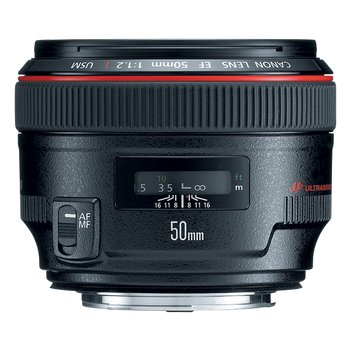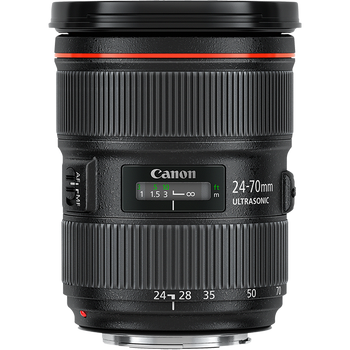- Exceptional sharpness
- Excellent low-light performance
- Beautiful bokeh
- Durable build quality
- Excellent image quality
- Fast and accurate autofocus
- Effective image stabilization
- Solid build
- Expensive
- Heavy
- High price
- Bulky
Canon EF 50mm f/1.2L USM vs Canon RF 24-70mm f/2.8L IS USM
When it comes to high-quality camera optics, Canon lenses are among the most sought-after in the industry. Two notable models that have garnered significant attention from photographers and videographers alike are the Canon EF 50mm f/1.2L USM and the Canon RF 24-70mm f/2.8L IS USM. While both lenses are designed to deliver exceptional image quality, they cater to different needs and offer distinct features that set them apart.
Focal Length and Versatility
The most obvious difference between the two lenses is their focal length range. The Canon EF 50mm f/1.2L USM is a prime lens with a fixed focal length of 50mm, making it ideal for portrait, street, and fine-art photography. On the other hand, the Canon RF 24-70mm f/2.8L IS USM is a zoom lens that covers a versatile range of 24-70mm, suitable for a wide range of applications, including landscape, event, and studio photography.
Aperture and Low-Light Performance
Both lenses offer impressive aperture capabilities, but the Canon EF 50mm f/1.2L USM takes the lead with its incredibly wide aperture of f/1.2. This makes it an excellent choice for capturing stunning portraits with a shallow depth of field and creating a beautiful bokeh effect. The Canon RF 24-70mm f/2.8L IS USM, while not as wide, still offers a respectable aperture of f/2.8, which is more than sufficient for most low-light situations.
Image Stabilization
One significant advantage of the Canon RF 24-70mm f/2.8L IS USM is its built-in image stabilization (IS) system, which provides up to 5 stops of shake correction. This feature is particularly useful for handheld shooting, low-light photography, and video production, where camera stability is crucial. The Canon EF 50mm f/1.2L USM, being a prime lens, does not have built-in IS.
Optical Quality and Construction
Both lenses are part of Canon's prestigious L-series, which guarantees exceptional optical quality and durable construction. The Canon EF 50mm f/1.2L USM features a sophisticated optical design with 8 elements in 6 groups, including a large-diameter aspherical element to minimize aberrations. The Canon RF 24-70mm f/2.8L IS USM boasts an even more complex design with 15 elements in 9 groups, incorporating multiple aspherical and UD (Ultra-Low Dispersion) elements to ensure outstanding image quality across the entire zoom range.
Autofocus and Handling
Both lenses employ Canon's advanced USM (Ultrasonic Motor) technology for fast and precise autofocus performance. However, the Canon RF 24-70mm f/2.8L IS USM benefits from the newer RF mount's faster communication protocol, allowing for even quicker and more accurate focusing. In terms of handling, both lenses are well-built and ergonomic, with the Canon EF 50mm f/1.2L USM being slightly smaller and lighter due to its prime lens design.
Conclusion
In conclusion, the Canon EF 50mm f/1.2L USM and the Canon RF 24-70mm f/2.8L IS USM are two exceptional canon lenses that cater to different photographic needs. While the 50mm f/1.2L USM excels in portrait and low-light photography with its ultra-wide aperture, the RF 24-70mm f/2.8L IS USM offers unparalleled versatility and image stabilization for a wide range of applications. Ultimately, the choice between these two outstanding lenses depends on your specific requirements and preferences as a photographer or videographer.































